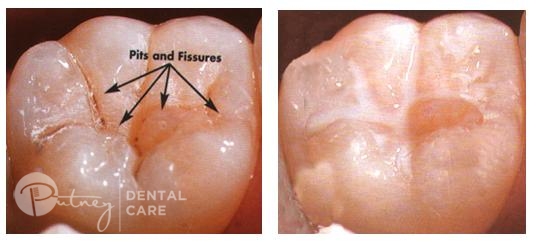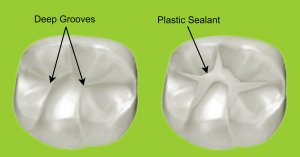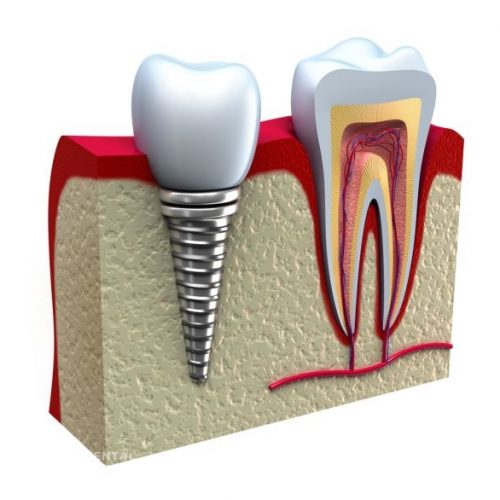Protect your teeth against cavities this Easter holiday

When was the last time you really brushed your teeth? Do you have a diet high in sugar and starches? If the answer is yes, then you are at risk of developing tooth cavities.
Cavities can form if the process of tooth decay continues without proper dental attention and treatment. Tooth Decay is the breakdown of the tooth enamel, which can be caused by frequent consumption of foods containing high levels of carbohydrates such as sugars and starches. Plaque forms when food, saliva and bacteria interact. Over time the bacteria in the plaque build-up reacts with sugars and produces acid. This acid causes the breakdown of the tooth enamel and if left untreated this could reach further into the dentin, resulting in a cavity as the surface collapses. For more information on the signs, symptoms and prevention of tooth decay
With the rise of processed foods containing high amounts of additives, there has been an increase in cavity and tooth decay cases. 3 in 10 Australian adults aged 25-44 years’ experience untreated tooth decay each year.
A cavity can cause damage to the nerves of your tooth, leading to more complex treatment. To fix an existing cavity a filling is used. This filling is usually made of a tooth-coloured material and is barely noticeable. In order to do this, dentists must drill through the enamel to remove the softened areas of decay in the tooth and then seal the hole with a filling, which will reduce any further damage or bacteria build up. Therefore it is important to have regular check-ups and cleans to ensure your teeth are healthy and strong.
So how do I prevent tooth cavities?
A diet high in fresh food is not the only solution. Early prevention against tooth cavities is essential. To do this, dentist use Fissure sealants, which prevent the occurrence of tooth decay by covering the deep grooves (fissures) of the tooth where bacteria and plaque usually live. This is most commonly done in the back teeth (molars) where tooth decay often starts. Sealants consist of a plastic film similar to a filling and can be placed in patients of all ages.
Pros of Fissure sealants?
- Reduce cavities
- Procedure is pain and drill free
- Helps achieve optimal dental health

Sealants
Why Fissure sealants?
Dental sealants add extra protection for your teeth. The chewing surface of your permanent back teeth (molars and premolars) have grooves known as ‘fissures’ which make them more susceptible to decay as they can be deep and narrow, making them difficult to clean with a toothbrush. For more information on fissure sealants procedure.

What to expect for fissure sealant procedure?
Fissure sealants application procedure is very simple! It requires no drills or numbing and only one in chair visit.
Your teeth will be thoroughly cleaned prior to application of the sealant. The sealant will usually take only a couple of minutes to implement. After the sealant is applied a curing light is used to harden the substance. You will have to wait 1 hour before you can chew on any food.
What signs and symptoms should I be looking out for when it comes to tooth decay?
- Toothaches
- Sensitivity to sweet, hot or cold foods or drinks
- Pain when chewing
If you are experiencing any of these symptoms please call Putney Dental Care on (02) 9808 2588. We specialise in treating and preventing tooth decay in our patients.
How do I avoid Tooth Decay?
- Regular brushing and flossing daily
- Regular visits to the dentist – where you can receive a clean that will significantly reduce plaque build-up.
- Reduce snacking in between meals
- Eat a variety of healthy foods (Recommend by the Australian Dietary Guideline)
- Reduce highly processed and high sugar foods.
- Drink plenty of water, especially after a meal
- Chew sugar-free gum after consuming highly acidic foods
At Putney Dental Care we deliver quality dental services, ensuring our patients are protected against issues such as Tooth Decay. Call us today on (02) 9808 2588.
 Pregnancy and Oral Health
Teaching Oral Health To Children
Pregnancy and Oral Health
Teaching Oral Health To Children Latest from the Dental Blog
 16 Jun 2023
16 Jun 2023
3 Stages of Recovering from Dental Implants
Invested in getting a dental implant but unsure about the recovery process? Our guide will walk you through the main…
 20 Oct 2022
20 Oct 2022
Whitening with Braces: What to Consider
Braces are the tried and true method to solve many orthodontic and cosmetic issues. This is achieved through constant pressure…
 23 May 2018
23 May 2018
Cracked Tooth Syndrome
Cracked tooth syndrome relates to a variety of symptoms and signs that can be attributed to a crack in a…
